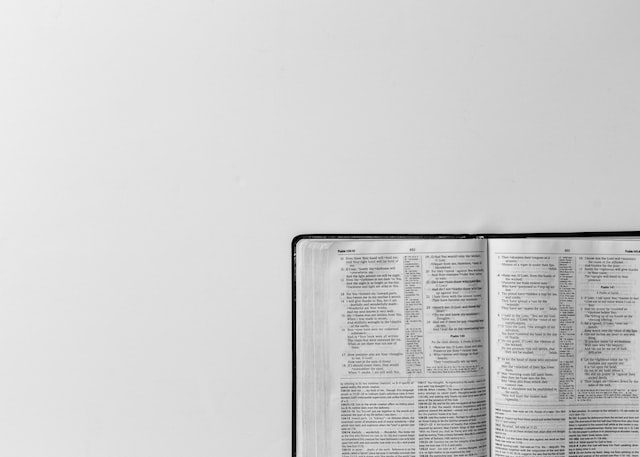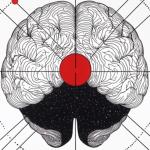
Throughout the summer, my wife — The Reverend Canon Natalie Van Kirk — and I have been preaching a series on the subject of doubt. We have been addressing both the subject of doubt itself and the questions that are often the source of trying questions for Christians, as well as others. Obviously, none of these articles are exhaustive but we hope that they will be a helpful stimulus to your own thinking.
Frederick writes:
Some years ago, I was having dinner with a few colleagues. One of my friends attended a non-denom. He looked at me and said, “So, how does a guy with a PhD in biblical studies become an Episcopal priest?”
I laughed (which is always my first response to obtuse questions) and asked, “Why do you say that?”
“Well, I mean, Episcopalians don’t really use the Bible much, do they?”, he said.
“Of course we do,” I said. “We read at least four passages from Scripture every Sunday, and the liturgy is filled with Scripture.”
I couldn’t quite resist adding, “So, we end up preaching from the whole Bible, not just the passage your preacher wants to use.” God help me, I should probably repent of comments like that.
But truth be told, we Episcopalians can be bad about the Bible in other ways.
“According to a 2023 Pew Research Center survey, 30% of Episcopalians read the Bible weekly”, compared “with 63% of Evangelicals.” And many of our churches don’t do as much Bible study as other denominations do. (I happy to say that in our parish we work hard not to be part of that pattern).
According to another study, “Episcopalians are considered to be the most educated Christian group in the United States, but they are also ranked near the bottom in terms of biblical literacy” and we are more likely to view the Bible “as a problem to be solved or a text to be endured.”
When you’ve been around as long as Mother Natalie and I have been, you also get tired of Episcopalians lifting up biblical scholars who are full-time skeptics, if not outright atheists. I had that experience – yet again – on social media not long ago.
Quoting Bart Ehrman, a professor of New Testament at UNC, the meme said, “Pastors, as a rule, are reluctant to teach what they learned about the Bible at Seminary.”
What non-specialists don’t understand is that the “scholarship” offered by Ehrman is the work of a disaffected fundamentalist whose early assumptions have not changed very much. He and others like him grew up expecting to take the whole of the Bible literally. And when he discovered that not all truths are “literal”, he concluded that the Bible is unreliable.
But when one sheds those childish assumptions, the Bible proves to be remarkably reliable:
The Greek texts of the New Testament are very close to the time of the originals and the sources for the Gospels can be traced back to eyewitnesses. Jesus died in 33AD. The earliest gospel is Mark, which at the latest, was written about 70AD. So that’s 37 years after the crucifixion. The content of both Mark and the other Gospels suggest that they relied on oral sources, including eyewitness accounts that were contemporary with Jesus.
The same could be said of the witnesses we have to the original content of Scripture: The earliest fragment of a New Testament gospel – the Gospel of John – is from around 100AD and word for word, it matches the same section of the full gospel. No other fragmentary or complete copies of any other ancient document is as close to its original.
In fact, we have roughly 20,000 manuscripts of the New Testament and scholars estimate that – using those manuscripts – our modern Greek New Testament accurately represents about 99% of the original and what is in dispute is of no substantive consequence.
By contrast, Plato died in 347 BC and the earliest, complete that we have of his work dates from about 895 AD. So, that’s a gap of 1242 years.
And – although the Bible was produced in a variety of places, in a variety of circumstances, over several millennia – it tells a remarkably similar story. It offers a consistent picture of a God who had no precedent in the ancient world. And it describes the spiritual needs of the human race in stunningly similar terms.
This does not mean that I would discourage you from believing that Plato existed or even that he said something like what the late manscripts suggest he said. But when one considers how easily people accept assertions about what Plato taught and then vehemently dispute the witness of Scripture, it is clear that what people have is a spiritual problem, not a historical one.
What I would suggest is that you begin anew with better clarity about what the Bible is:
One: The Bible is not a book, it is a library of books. So, so it contains a variety of literary masterpieces. Some of that work is poetry. Some of it is mythic – meaning it expresses spiritual truths in the form of stories. Other parts of it are prophetic and visionary. Still other parts of it contain historical material and eyewitness accounts. They should be read accordingly.
Two: Since it is not a single book, written by a single author, we should not expect the same perspective. As I said, there is remarkable unanimity throughout the Bible about who we are, what we need, and the character of God. But it obviously contains a variety of perspectives and that is one of the Bible’s strengths.
Three: The books of the Bible were addressed to specific circumstances. They are the product of other times, other places, and diverse circumstances. This means that the authors of Scripture speak about God in a way that is conditioned by sociological and cultural norms of other times and other places.
Four: The church has long been convinced that the Bible was written by human beings, but that its writers were inspired by the Holy Spirit. We don’t believe that the writer’s took dictation. We don’t believe that God forced them to write what they wrote. And we don’t believe the Bible dropped down out the sky on a golden tablet. But we also believe that this is the Bible’s great strength.
Five: The Bible is not a book of theological propositions. Part of the reason that we Episcopalians believe that the church’s tradition and creeds are important is because the Bible does not try to do this. So, just as Mother Natalie and I try to derive lessons from Scripture on a Sunday and put them in contemporary terms, so the church has relied on summaries and restatements of the insights Scripture offers.
Six: The Bible is compatible with a scientific view of the world, but it is not a science textbook. Criticizing the Bible for failing to do this is like criticizing Shakespeare for failing to comment on physics. Equally, trying to wring scientific observations out of Scripture should be an embarrassment to people who do it, but it is hardly a defect in the biblical witness.
So, what would I say about reading the Bible?
First, it should be read prayerfully. It is, as Paul says, a God-breathed word. If it is read with skepticism, reserved for Scripture alone, then you will never get much from it. If you are open to what it has to say, the truths and insights you can discover are limitless and lifegiving.
Second, by all means, read it alone, but be sure to read with others. Reading it with others enhances our understanding of Scripture and identifies our blind spots. We have made too much of the value of “me and my Bible” and too little of reading Scripture as a communal exercise.
Third, reading the Bible requires the elaboration offered by tradition and the guidance of the Holy Spirit. Some parts of the Christian tradition believe that we should use the Bible and only the Bible. But the Holy Spirit is also at work in the church and the Spirit was already at work in ancient Israel and in the life of the ancient church, even before we had what we describe as the Bible today. At the same time, the Bible occupies a unique place in the Christian tradition. It is a window into a singular moment in the life of the church and one of the foundations of our faith.
Four, read it with literary sensitivity. As I said, it is a library of books. It isn’t all poetry and metaphor, sometimes it relies on historical witness and events. At other times it is poetry and many other forms of literature. Not all truths are conveyed by factual accounts.
Above all, receive it as a window into God’s love and grace, written by human beings, who were empowered by the Holy Spirit. It is not something to be feared. It should be savored — or as the Prayerbook puts it, “read, marked, and inwardly digested”.
We read it, but to benefit from it, we must allow it to read us. It is offered to us as light meant to lead us into all light. To borrow an image from the Scottish poet, Andrew Lang, far too often Christians use the Bible like a drunk uses a lamppost — they lean on it, they don’t look for illumination.
Look for illumination and you will find it.
















